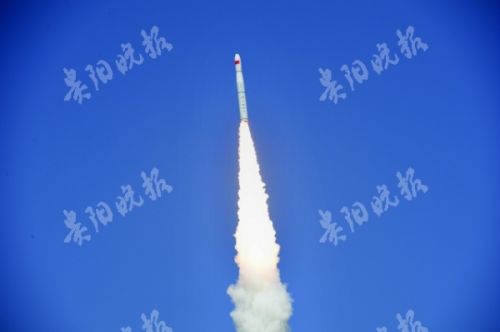Guiyang-1 satellite flies into space

China used a Long March 11 rocket to carry four satellites into space at Jiuquan Satellite Launch Center in Jiuquan city, Northwest China's Gansu province, on April 26.
One of the four satellites, Guiyang-1, is the first satellite named after Guiyang city. Its successful launch gives Guiyang a new platform to advertise and promote its image.
Guiyang-1 is able to meld traditional image information and spectral information into one. The massive data it acquires will provide a strong support for the construction of big data industrial bases for satellite production, the expansion of big data exchange and satellite big data research.
The Guiyang government signed an agreement with Zhuhai-based Orbita Universe Technology Co Ltd in November 2017. The agreement, with an expected investment of 700 million yuan ($110.54 million), anticipates building of a satellite big data industrial base in Guiyang in two years. The base will include a ground receiving station, a data center, an exchange and trading platform and a cloud service platform for satellite data.
Satellite data from ground receiving stations across China will be gathered in Guiyang's Global Big Data Exchange and be applied to broad fields such as people's livelihoods after desensitization and decryption.
It is reported that a big data trading board developed by Orbita and GBDE will be launched during the 2018 China International Big Data Industry Expo.

A Long March 11 rocket carries Guiyang-1 and three other satellites into space at the Jiuquan Satellite Launch Center in Jiuquan city, Northwest China's Gansu province, on April 26. [Photo/www.gywb.cn]







